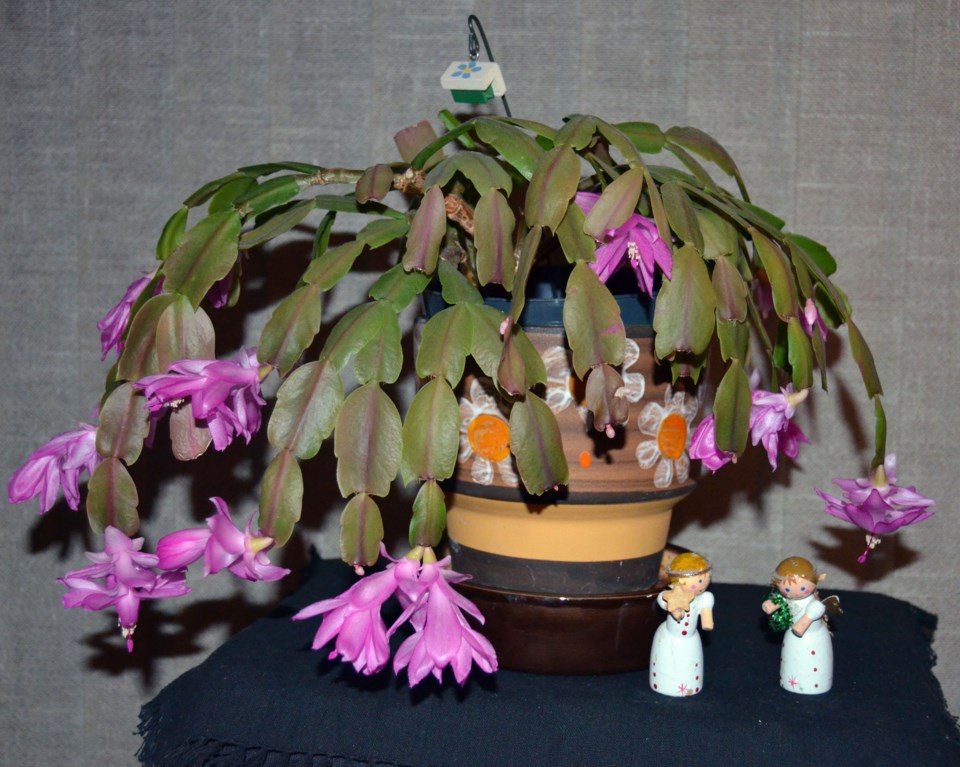The professional gardeners on the radio have been saying for many years that house plants will bloom more readily if they are root-bound. This seemed contrary to my feeling that it was kinder to the plants to give them bigger pots so they could have a happier life. A happy plant is a healthy plant – sort of like being a person. People need room to grow, to spread their wings and fly, to bloom like a flower. Being pot-bound does not apply to those addicted to that other kind of ‘pot.'
On the other hand, if a plant has no roots, it will soon topple and become a tumble weed, headed for the compost pile. Continuing with the analogy of plants and people, I was thinking about my roots. They seem to be disappearing. I don’t think I’m compostable – dust to dust – and my recyclable parts are past their best-before dates. I water daily, with a little Invigoro added from my cache of bottles in the food and drinks cabinet, keeping my roots moist.
Still, they wither.
Historically, according to the people selling genealogy stories, my roots go back to England, Ireland and Germany. A couple of hundred years ago my genes were transplanted to North America, uprooted a couple of times, before ending up in Parry Sound District, a place so named by the colonists. The land no doubt had a native peoples’ name but in keeping with the written word of the 16th or 17th century, and named after a person or place called ‘Parry’ and adding the seafaring term, there was my family’s flower pot.
The people organizing these transplants from Europe (in our case) may have thought they were carrying on the centuries-old traditions of fighting for lands, or simply taking the land by dominance, barter and skullduggery as they had since recorded western civilization. This had worked before and indeed continues to this day (see Ukraine/Russia). However, there was a glitch in that some native people were not too keen on this assimilation of their lands and way of life. They too had roots.
Of course, we do not know what was going through the minds of the surveyors, map makers, and politicians who were transplanted here when they used native names for villages, towns, lakes, rivers, and eventually schools and sports teams. Altruism or appeasement for treaties and deals, who knows? And to keep the transplants happy, they adopted names from history and the olde country.
Obviously, mistakes were made and are now being corrected. Who knew, just a few years ago, that naming schools and streets after the Algonquins and the Chippewas were wrong-headed? What will happen to those little towns where I had some roots that carry native names? Powassan, Nipissing, Commanda, Restoule and forget about Toronto, Ottawa and Canada.
I was sorry to see Marathon Beach in North Bay renamed.
The beach area likely did have a native name but the newcomers gave the long beach a name from their history – Marathon – which understandably meant nothing to the native peoples. Now another little root has been lost for we colonizers cannot really replace our roots (Marathon) with the roots (Shabogesic) of the native peoples. Maybe Dave and Maurice can sort that out.
Perhaps snipping or trimming some of those roots will give my other roots a chance to flourish. Okay, I sort of self-amputated the religion root, going secular many years ago. And yet, there are little root hairs of Christianity still clinging. We may have taken Christ out of the now-commercial Christmas but I did like some of those Christian Christmas carols. Somehow, seasonal songs about snowmen and sleigh rides seem like a modern artifice replacing another of my dying roots.
Other parts of my root system are also slowly dying away.
Traditions, customs, manners, etiquette, rituals of marriage, childbirth and death, and even foods are fading into history. When did we start eating kale instead of some tasty fiddlehead fronds? Quinoa instead of oats? My roots are being replaced by what seems in the instance as fads, pop culture, and sadly, nothing. And there is the rub.
Without those roots, we become lost in the milieu, the rush of the minute, lost without a history to pass down if we have descendants. Perhaps we can make new roots but the appropriation of other cultures is itself a dilution – perhaps the results will be a new shoot, sprouting up to bloom into a brave new world.
For me, nearing the end of my time, I still cherish the histories, literature, art, music, the memories that are my roots. The new, I will view with a skeptical eye, willing to watch and hope for a future without roots set into the foundations, the grounds of the historical past.
In the meantime, the apologists, the politically correct, the history re-writers, the compromisers, the visionaries are repotting us, hoping to sprout a new crop of - I was going to say Canadians – hybrids whose roots, untangled from the past, are shallow but hopefully will grow deep and flourish.
And so, traditionally, I wish you a Happy New Year.



